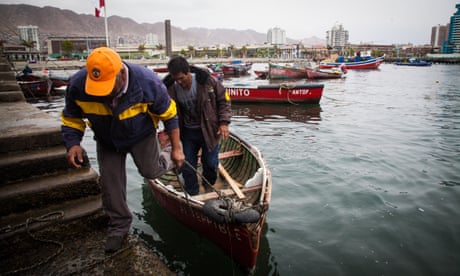
In 2003, Chile’s first desalination plant began operating in Muñoz’s neighbourhood, pumping 150 litres of drinking water a second towards Antofagasta to relieve the city of its dire need for fresh water.
The facility has steadily increased its output, and is now the largest drinking water desalination plant in Latin America, operating at 1,056 litres per second.
It provides 82.5% of Antofagasta’s potable water, with the remainder fed by the city’s scarce surface water reserves.
Across the region of Antofagasta, accounting for 600,000 people, 56.3% of the drinking water consumed is now desalinised sea water.
Finding water in the desert has never been easy.
“Across Antofagasta’s history, the struggle for access to water is the one constant,†says 92-year-old historian Floreal Recabarren at a city centre café, rapping his cane impatiently on the cobbles.
Born in 1927, Recabarren served as the city’s mayor across two stints in the 1960s and 1990s.
“We don’t have that problem anymore; the water quality is very good now because of desalination.â€
Despite the clear necessity for a reliable water source, concerns over the ecological impacts of desalination observed by Muñoz have followed quickly behind the implementation of the technology.
A suction tower on the sea floor sitting just over 300m from the shore and 20m below the surface draws water slowly into a pipeline, pumping it towards the plant.
For every litre of drinking water produced at La Chimba, 69% of the cost incurred is to power the plant, compared to just 9% for conventional water treatment procedures.
With Chile’s water crisis set to intensify over the coming years in the central and northern parts of the country, it is likely that desalination will form an important part of national plans to mitigate issues related to scarcity.
As such, local politicians have been keen to redirect the conversation towards cleaning up Chile’s energy mix, with the country committed to becoming carbon neutral by 2030.
However, Muñoz can ill afford to look too far into the future with his livelihood under immediate threat